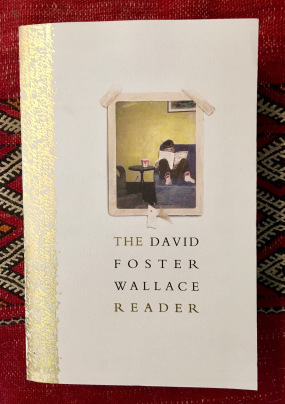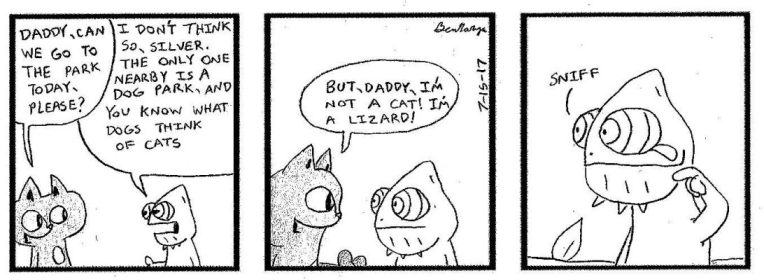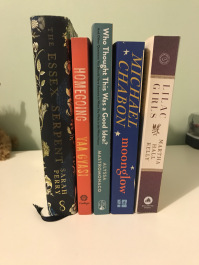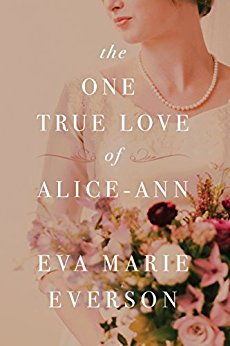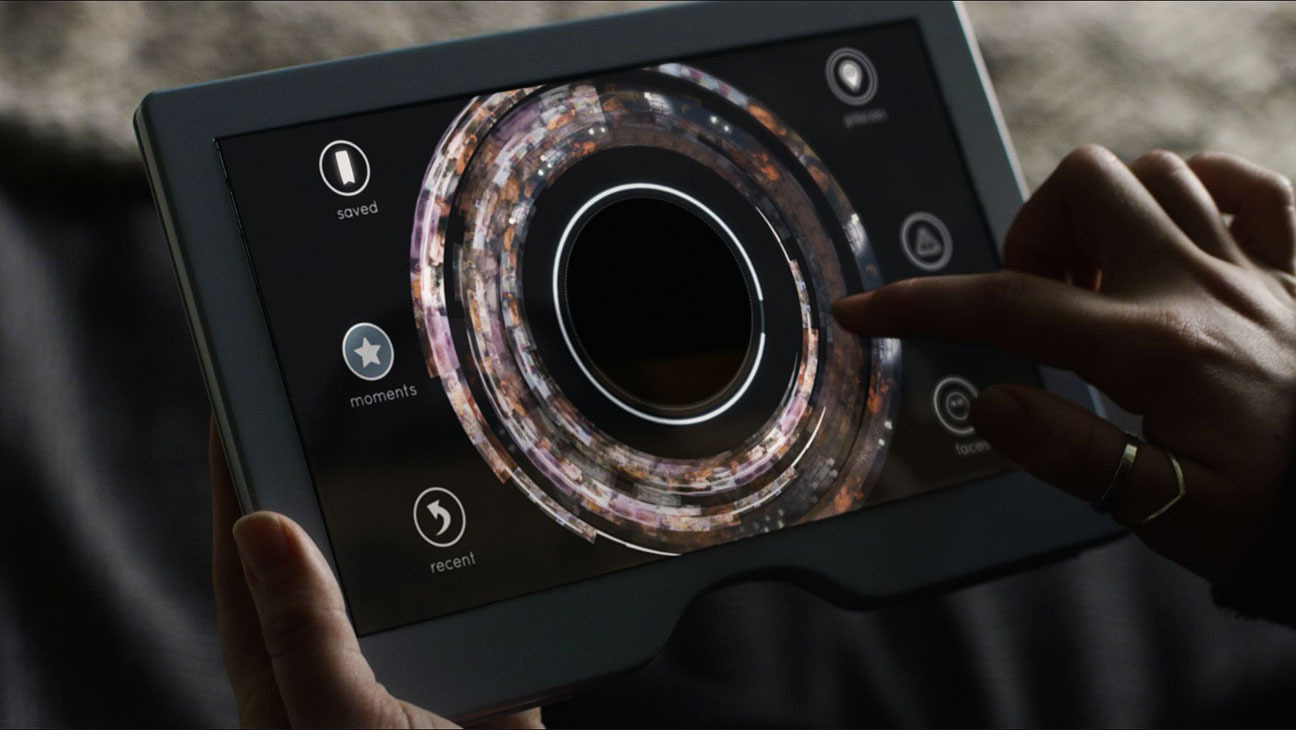I’ve been a bit quiet on the blog-front for the last couple of weeks. You probably assumed I succumbed to an addiction to Westworld or the latest Scando Noir series. Nope. Well, actually yes to the Westworld addiction, but I generally try not to let my tv habit supplant my reading one.
The problem has been that my recent reading has all been work-related. Freelance writing work comes in all shapes and sizes. My latest assignments have been assessing a Master’s thesis and reviewing a book of poetry. Both involved significant reading of the works themselves and related research material. Both jobs also supplied the materials, so my commitment to not buying books remains unbroken. (However, I did attend a book launch last week for Lucy Durneen’s short story collection Wild Gestures and had two glasses of wine, therefore satisfying the exemption criteria. I bought the book. SO satisfying. I haven’t finished reading it yet, so that post is still to come.)
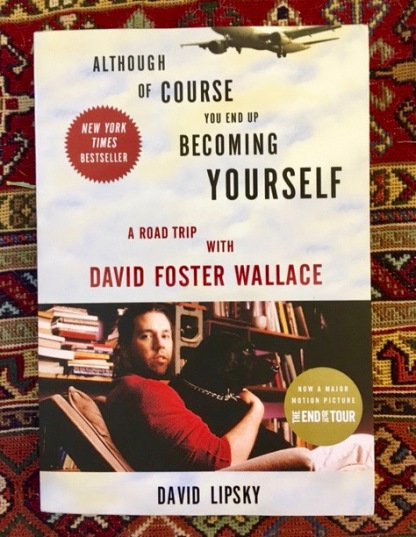 A book I did recently finish reading (for pleasure) was Although of Course You End Up Becoming Yourself: A Road Trip with David Foster Wallace, David Lipsky’s account of spending five days on the road with the author at the end of his book tour promoting Infinite Jest back in 1996.
A book I did recently finish reading (for pleasure) was Although of Course You End Up Becoming Yourself: A Road Trip with David Foster Wallace, David Lipsky’s account of spending five days on the road with the author at the end of his book tour promoting Infinite Jest back in 1996.
I must admit to reading this as a result of loving the James Ponsoldt film The End of the Tour, which was based on Lipsky’s book. My fascination with both the book and the film is an expression of a character trait of which I’m not especially proud. I happen to be enthralled by books about the writers’ lives. Biographies, diaries, autobiographies: I’ll read them all. That doesn’t sound so bad, does it? Well, it gets worse. When it comes to the lives of writer’s whom I really admire, I kick it up a notch. Addictive personality. You get the picture. Then, there’s the final level. If the writer I love happens to have had issues with mental health and taken their own life, then I will obsessively hunt down every word they wrote in their lifetime and every book, article or film made about them. I’m not proud of it. Clearly, I’m besotted with the archetype of the writer as “tormented artistic genius.”
David Foster Wallace definitely falls into this final category. Infinite Jest is a modern masterpiece. To say the man was brilliant is a glaring understatement. I even went a little weak at the knees reading his teaching and syllabus notes in The David Foster Wallace Reader. If you weren’t already aware, Wallace committed suicide at the age of 46 after unsuccessfully trying to wean himself off anti-depressants. So it should not surprise you to learn that I had a minor (ok, major) tantrum last year when I discovered that “limited release” meant that The End of the Tour would not be screened in Adelaide. 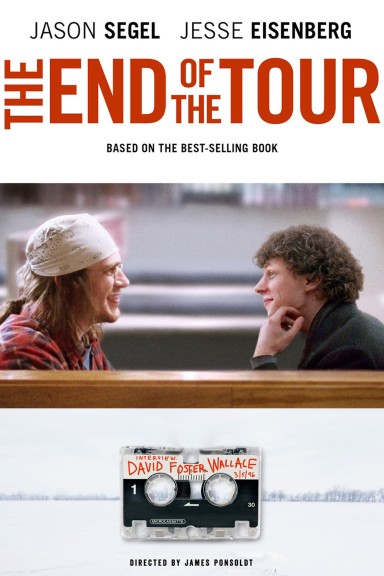
Lipsky’s 2010 book, Although of Course You End Up Becoming Yourself, was part of my December Book Binge and understandably meant treating myself to another viewing of The End of the Tour. Since I saw the film the day it was released online in 2015 (but before reading the book), I’ll give a quick overview of the film, as it informed and influenced my reading of Lipsky’s work.
The End of the Tour is set over the course of five days in 1996, just after the publication of Infinite Jest; a novel that generated an enormous amount of literary hype. Lipsky (played by Jesse Eisenberg) is a reporter for Rolling Stone who is assigned to accompany Wallace (played by Jason Segel) on the final days of the book tour. Lipsky meets Wallace and his dogs at Wallace’s house in Bloomington, Illinois, and travels with him (but without the dogs) on the publicity circuit. The film follows the gradual development of a friendship between the two as they engage in long and, at times, intensely philosophical discussions about life, literature, the literary world and fame. From these conversations, portraits of both Wallace and Lipsky are developed and the viewer is granted some insight into Wallace’s worldview and the distinctive pressures of sudden literary fame.
It is extremely interesting to come to the book after the film. The book is unique in that it’s structured as a transcript of the conversations Lipsky recorded while travelling with Wallace. The text is extremely disjointed and non-linear. The film does an incredible job of reassembling these rambling conversations into a linear narrative that manages to preserve much of the exact wording of the dialogue and the integrity of Wallace’s perspective and opinions. If I had read the book first, I would’ve doubted the plausibility of constructing a feature film using these transcripts.
That said, I relished the book. Both the style and the content worked to make me feel as if I was sitting in the backseat of the car, listening to them talk, almost able to smell the cigarette smoke and the juice from Wallace’s chewing tobacco. Ok, now I’ve made it sound gross. But if, like me, you’re a fan of the way Wallace’s mind worked, then you’ll love this re-acquaintance with the flow and substance of his thoughts. This is the beauty of Lipsky’s choice of straight transcription. Now that Wallace has gone and we will never receive the gift of another David Foster Wallace book, we’re let back into his head one last time. Drink it in. I suspect you’ll come to love the smell of the backseat.
